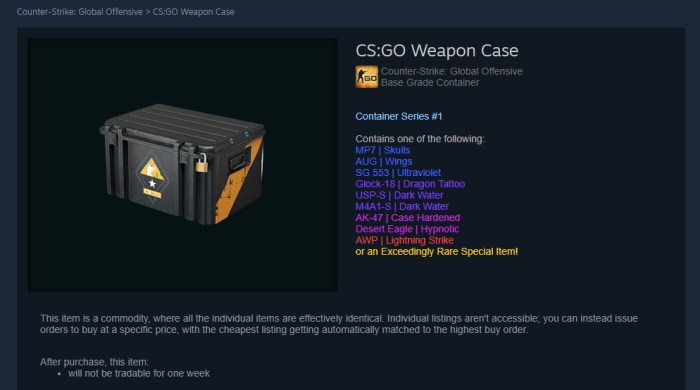As the game industry evolves, publishers spend a lot of time searching for new ways to monetize their output, with some even choosing to add microtransactions to full price AAA releases. This is not new, and we’ve been living in a post-F2P boom for a few years now, but the popularization of a specific monetization strategy has raised a number of questions on both its morality and legality.
What are we talking about? Loot boxes, of course. Some have called them gambling, others defend them as a necessary evil in an industry where the price for AAA games has stayed level even though modern productions can cost enormous sums of cash, and keep developers on the clock for years on end. In a nutshell, loot boxes offer an item (or an assortment of items) from a predetermined pool, but the customer does not have any control over the “thing” (usually skins, though some games also offer gameplay-altering items) that comes out of the box. This means we can purchase an Overwatch loot box, open it and find out that our reward is something we do not want, thus prompting another purchase if we are easily inclined to spend money on that sort of thing.
 From my point of view, loot boxes are not inherently bad, but they should definitely be regulated so children and people who could be easily exploited do not get addicted. It’s one thing to go to a legit betting website and a completely different one to get lost in the world of CS:GO cases, which can lead to extraordinary money expenditures (seriously, some skins fetch more than a thousand dollars on the Steam market alone). Websites designed from the get go for the purpose of getting customers to bet or gamble on things like sporting events, for instance, have to follow a number of rules, preventing them from engaging in business activities with children. Sadly, this does not apply to loot boxes, and games like FIFA (with its Ultimate Team mode) or even Overwatch have the potential to lead kids down the slippery slope into gambling territory.
From my point of view, loot boxes are not inherently bad, but they should definitely be regulated so children and people who could be easily exploited do not get addicted. It’s one thing to go to a legit betting website and a completely different one to get lost in the world of CS:GO cases, which can lead to extraordinary money expenditures (seriously, some skins fetch more than a thousand dollars on the Steam market alone). Websites designed from the get go for the purpose of getting customers to bet or gamble on things like sporting events, for instance, have to follow a number of rules, preventing them from engaging in business activities with children. Sadly, this does not apply to loot boxes, and games like FIFA (with its Ultimate Team mode) or even Overwatch have the potential to lead kids down the slippery slope into gambling territory.
 Does this mean that the videogame industry should do away with loot boxes? I am not a lawmaker, so I can’t answer this question from that perspective. As a gaming enthusiast, I know that no matter how much we complain about this particular monetization system is here to stay, since it would seem that there is a big market for loot boxes (Ubisoft has been on record saying that as long as gamers buy them, loot boxes will continue to be featured in their games, for instance). An increasing number of European countries has been working on tighter regulation, however, with some going as far as moving towards outright bans on loot boxes. This has already affected the CS:GO community in Belgium and the Netherlands, as Valve has removed the ability to view or open crates in these countries (though the Steam Community Market is still active and players can get skins from there).
Does this mean that the videogame industry should do away with loot boxes? I am not a lawmaker, so I can’t answer this question from that perspective. As a gaming enthusiast, I know that no matter how much we complain about this particular monetization system is here to stay, since it would seem that there is a big market for loot boxes (Ubisoft has been on record saying that as long as gamers buy them, loot boxes will continue to be featured in their games, for instance). An increasing number of European countries has been working on tighter regulation, however, with some going as far as moving towards outright bans on loot boxes. This has already affected the CS:GO community in Belgium and the Netherlands, as Valve has removed the ability to view or open crates in these countries (though the Steam Community Market is still active and players can get skins from there).
Personally, I understand the need for a monetization strategy that doesn’t segment the community in multiplayer games (though some publishers have decided to go both ways, with Activision selling loot boxes AND premium gameplay content in their titles), and this seems to be the one that gamers have embraced. However, lawmakers need to start working on new sets of rules and regulations surrounding loot boxes so our kids don’t fall prey to predatory monetization practices. So yes, we should start to worry NOW.


